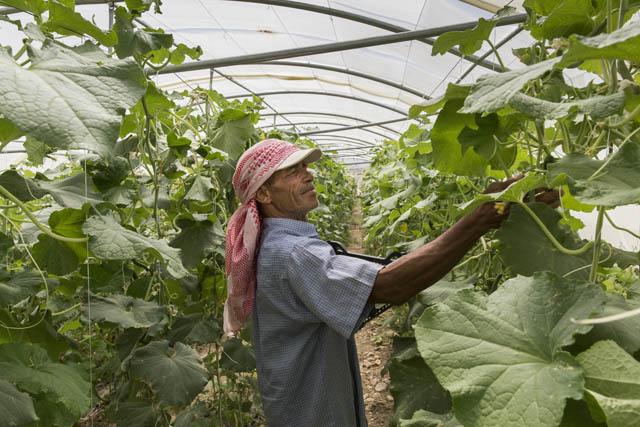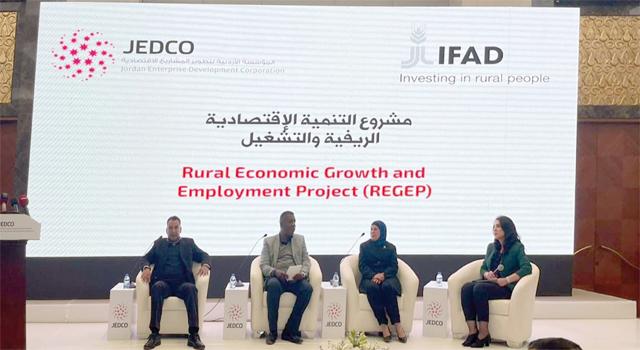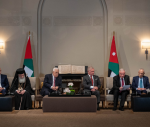You are here
Netherlands provides 4.13-m-euro grant to enhance climate change adaptation in agriculture
By JT - Jan 17,2022 - Last updated at Jan 17,2022

The Rural Economic Growth and Employment Programme has proved effective in enhancing the skills and creating employment opportunities for youth and women in the horticultural production sector, according to the International Fund for Agricultural Development (Photo courtesy of IFAD)
AMMAN — The International Fund for Agricultural Development (IFAD), the Ministry of Planning and International Cooperation in Jordan, and the Kingdom of the Netherlands have signed a 4.13-million-euro financial agreement last week to strengthen the sustainability and climate resilience of ongoing interventions under the Rural Economic Growth and Employment Programme (REGEP) in Jordan.
Dina Saleh, IFAD regional director, Near East, North Africa & Europe Division, and Minister of Planning and International Cooperation Nasser Shraideh signed the agreement, according to an IFAD statement.
“This additional funding from the Netherlands will focus on activities that aim to increase the rural population’s climate resilience. The project is aligned with the Netherlands Multiannual Country Strategy for Jordan to help farmers increase yields and family income while using less water,” said Marc Hasselaar, deputy head of mission of the Embassy of the Kingdom of the Netherlands in Jordan.
Together with a loan of 11.3 million euros and grant of 0.63 million euros, which was approved by IFAD in June 2020, the additional funding will be used to build on REGEP’s success and extend its completion date until March 2024.
REGEP has proved effective in enhancing the skills and creating employment opportunities for youth and women in the horticultural production sector, read the statement.
The project has also helped improve access to rural credit through the participation of commercial banks in lending to the agriculture sector. Youth participation, as well as engagement of people living below the poverty line, has reached 30 per cent and 59 per cent respectively, the statement said.
The Dutch supplementary financing will generate a synergetic effect with the IFAD investment, yielding higher impact and outreach. The extension will allow REGEP activities to be consolidated in the five governorates covered under the original financing — Mafraq, Al Balqa, Jerash, Ajloun, and Madaba — and will replicate and expand coverage to include Irbid, Zarqa, Karak, Tafileh and Maan governorates. This aims to reach an additional 45,000 people living in rural areas.
REGEP invests in water-efficient irrigation systems, promotion of drought resistant varieties, and mainstreaming climate-resilient practices to support adaptation to climate-aggravated water scarcity by reducing water use in agriculture.
“The project aims to provide non-conventional water resources for household use and agricultural activities through water harvesting,” said Vrej Jijyan, IFAD country director for Jordan.
“Investments, which aim to support the shift towards better agricultural practices and organic farming through demonstration plots and credit lines will also strengthen efforts,” he added.
IFAD and Jordan are long-standing partners with more than 30 years’ experience in agriculture and rural development in rainfed and semi-arid areas. To date, IFAD has invested in nine projects with a total financing of $ 253.77 million reaching 90,727 households in Jordan, according to the statement.
Related Articles
AMMAN — The Jordan Enterprise Development Corporation (JEDCO) has launched the second phase of the Rural Economic Growth and Employment Proj
AMMAN — The International Fund for Agricultural Development-funded (IFAD) Rural Economic Growth and Employment Project (REGEP) is set to see
AMMAN — The government on Tuesday signed a finance agreement with the International Fund for Agricultural Development (IFAD), under which th

















